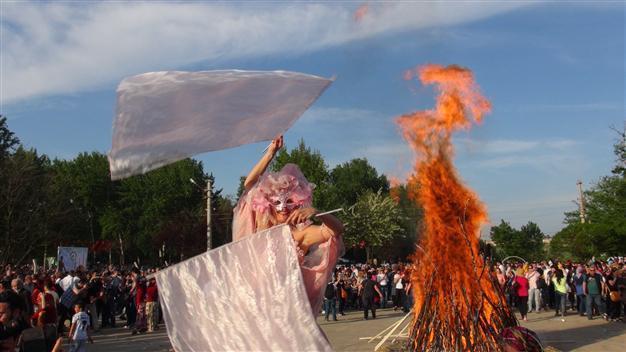Festival for start of summer, Hıdırellez, celebrated across Turkey
ISTANBUL – Anadolu Agency

DHA Photo
The harbinger of summer in the Turkic cultural world, Hıdırellez, was celebrated with various festivities on the evening of May 5, with gatherings across Turkey.Revelers in Istanbul’s Ahırkapı neighborhood greeted the coming of summer by dressing up and dancing to music played by Roma musicians, who are local to the area and are particularly keen celebrators of Hıdırellez.
In the border province of Edirne, festivities began on the afternoon of May 5, the time of year when Hızır (also known as Khıdır), who symbolizes earth and vegetation, is believed to meet İlyas (or Elijah), who is associated with the sea and water. Hıdırellez thus marks the meeting of land and water.
Both locals and tourists attended the celebrations in Edirne’s historic Sarayiçi neighborhood, where they tied ribbons to the wishing tree and washed their faces in the Tundzha (Tunca) River, which the Roma people believe brings purification and health.
A Hıdırellez celebration for was organized at the St. Georges Orthodox in the southern province of Hatay, attended by both Christians and Muslims, Doğan News Agency reported. While candles were lit for wishes, Turkish delight was distributed to participants.
With gatherings also taking place in the provinces of Antalya, İzmir, Manisa, Eskişhir, Bursa and Çanakkale, Culture and Tourism Minister Ömer Çelik issued a message for the occasion.
“I believe that with Hıdırellez, when wishes full of abundance, health and hope are coming true, the strength of the essence of our being and our deeply rooted connection, which has been in these lands for centuries, will be renewed,” read a part of Çelik’s message, congratulating everyone on the day of Hıdırellez.
Hıdırellez and its different variations are celebrated from Eastern Europe to Central Asia. In Turkey, the festivities are seen as particularly important for the Roma and Alevi communities.
















